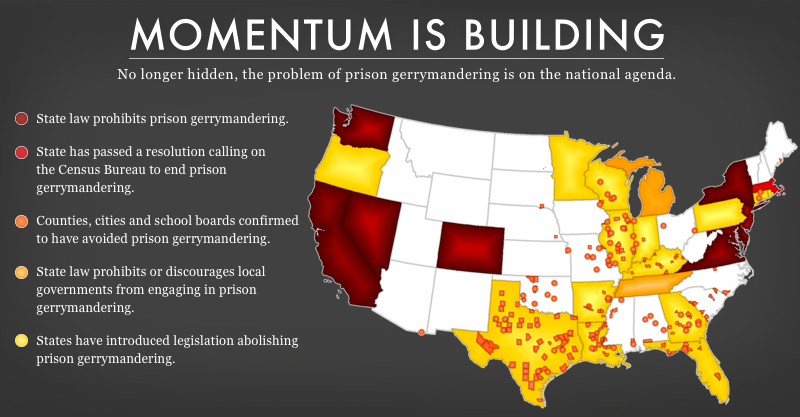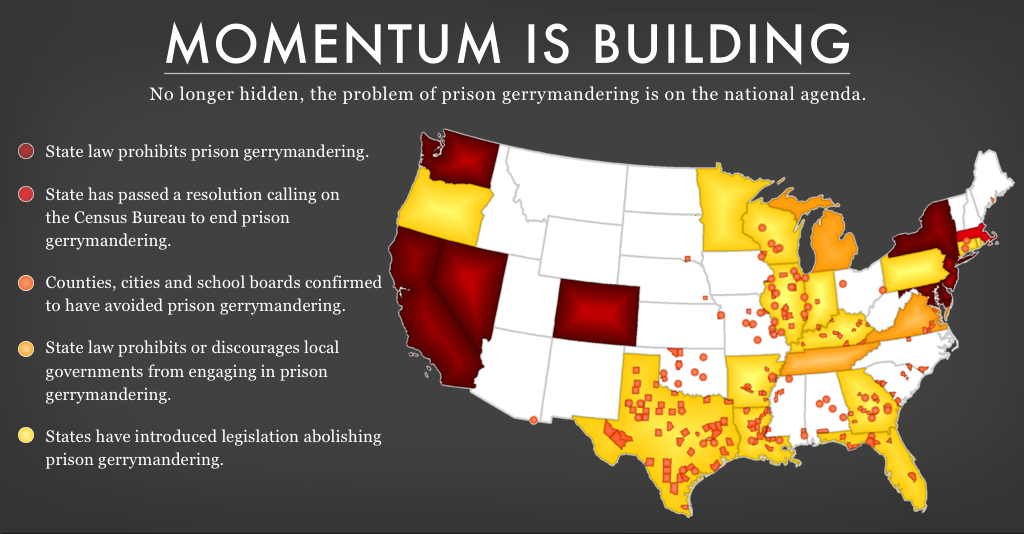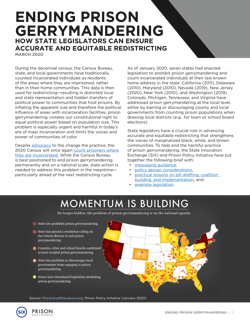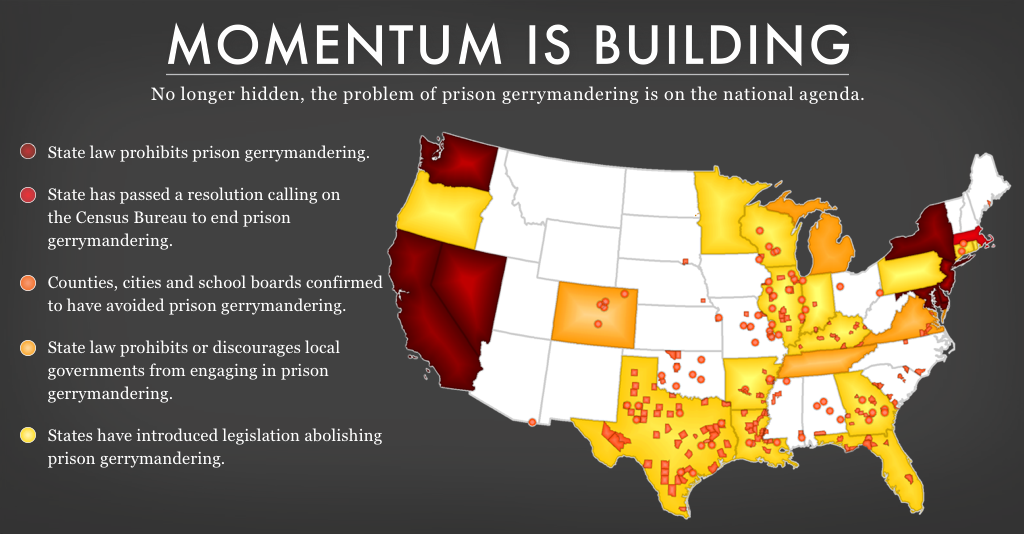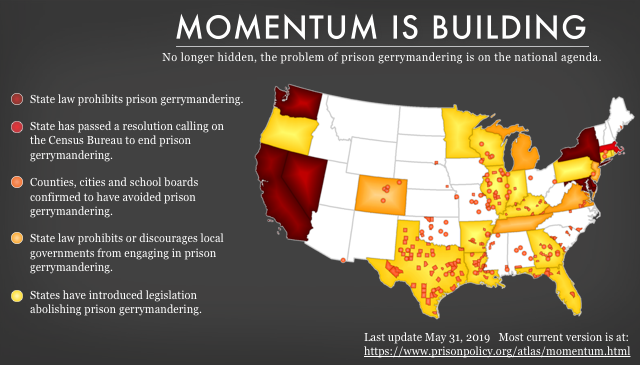Do prisons draw in Census money for their host communities? No.
One of the most common arguments against prison gerrymandering reform is the fear, among people in prison towns, that their communities will lose out on funding. It's a fear based on a misunderstanding of how federal and state funds are allocated.
by Aleks Kajstura, July 13, 2020
It’s that time of the decade again when the Census Bureau is hoping to count every single person in the country. Even though the April 1 “Census Day” has passed, the Bureau is still trying to convince the roughly 40% of US denizens that have yet to fill out a form that they should be counted. To persuade the hold-outs the Census Bureau, along with their state and local partners, rely on advertising how much money is riding on the count.
On its website where people can fill out the Census form, the Bureau stresses the financial stakes of counting people correctly: “Census results help determine how billions of dollars in federal funding flow into states and communities each year.” Funding makes an appearance in nearly every mention of how Census data is used. For example: “The 2020 Census will determine congressional representation, inform hundreds of billions in federal funding every year, and provide data that will impact communities for the next decade.”
Those statements are true. But some municipalities, desperate not to lose any population in the decennial count, often resort to putting a price tag on each person’s failure to respond. For example, as local officials in Georgia try to ensure that local residents are counted, the local paper peppers in claims like: “If only one person is counted in a house with four people, it will mean $69,000 less in local coffers over a decade.”
But while it’s true that a lot of funding depends in some way on Census data, this funding isn’t a lump sum that can be converted to a dollar amount per head. In fact, the same series of studies referenced in that Georgia newspaper warn against drawing such false conclusions.
A brief by Andrew Reamer, Research Professor at the George Washington Institute of Public Policy, gives a very detailed walkthrough of the types of population data used to distribute funding. Reamer’s brief makes it clear that per-head calculations are misleading. For a more digestible overview, try looking at a single state, such as Massachusetts. The Massachusetts Secretary of State’s Census 2020, Explained: How It Works and What’s at Stake for Massachusetts has a section on the Census’s funding impact, which correctly notes that some programs “may hardly be affected at all by Census counts.”
These details of the Census’s funding impact tie back to a question we’re getting a lot: Does the way people in prison are counted in the Census impact any particular area’s funding?
The Census Bureau counts incarcerated people at the location of the prison rather than as residents of their home addresses. This demonstrably skews a variety of statistical data for prison-hosting communities. And of course, it creates distorted population counts for determining representation in local and state legislative bodies, resulting in prison gerrymandering. But it does not draw in federal or state funding for the community hosting the prison.
Nine states have passed laws ending prison gerrymandering — adjusting their redistricting data to count incarcerated people at home rather than at the location of the prison — and none of these laws will impact funding distributions based on Census counts. New York and Maryland implemented their laws before the 2010 Census, and have not seen any impact to their formula funding. That makes sense, because no funding formula relies on redistricting data.
One of the most common arguments against prison gerrymandering reform is the fear among prison-hosting communities that they will lose out on funding, which they believe is based on the incarcerated population being counted in the prison town. This misunderstanding of how federal and state funds are allocated shouldn’t hold up reform any longer.
